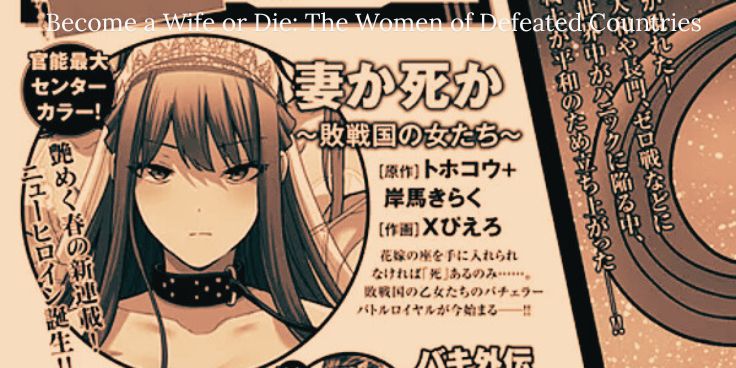Throughout history, war has shaped not only nations but also the fates of women in ways that are often overlooked. When armies clashed and kingdoms fell, the victors seized more than territory—they claimed the lives and bodies of women. The haunting phrase “become a wife or die: the women of defeated countries” summarizes a cruel reality where survival often meant submission. In this essay, we explore how women in conquered societies were forced into roles that blurred the line between survival and slavery.
Historical Context
The fate of women in warfare has been recorded in ancient, medieval, and modern texts. In classical times, invading forces frequently enslaved women, taking them as concubines or forced wives. The expression “become a wife or die: the women of defeated countries” symbolizes a long tradition of using women as war trophies. These practices were not random but deeply tied to power, inheritance, and control. Conquered women represented both humiliation for the defeated men and continuity for the conquerors.
Women as Symbols of Power
In many cultures, women were seen as extensions of family honor and national pride. When an enemy was defeated, capturing their women was symbolic of victory. The demand to “become a wife or die: the women of defeated countries” carried psychological weight. It told survivors that their culture and independence had collapsed. Women’s bodies became sites of domination, enforcing the conqueror’s authority not only militarily but socially.
Forced Marriages and Assimilation
One of the most common consequences of defeat was forced marriage. To “become a wife or die: the women of defeated countries” meant assimilation into the conqueror’s society. These marriages were rarely consensual; instead, they were tools to erase old identities and forge loyalty to the new rulers. By marrying conquered women, victors sought to legitimize their claim over both land and people. While it allowed some women to survive, it also trapped them in lifelong relationships of dependency and fear.
Enslavement and Exploitation
Not all women were given the “choice” of marriage. Many were sold into slavery, trafficked across empires, or used as sexual servants. The stark ultimatum “become a wife or die: the women of defeated countries” reveals the narrow avenues of survival. Women who resisted often faced execution or lifelong abuse. Their stories remind us that war crimes against women are not recent inventions but deeply rooted in human history.
Psychological Trauma and Identity Loss
Beyond physical violence, women endured deep psychological scars. To accept the command “become a wife or die: the women of defeated countries” meant erasing one’s past and surrendering autonomy. Many women were stripped of their cultural identities, forced to adopt the language, religion, and customs of their oppressors. Generations of children born from such unions carried mixed heritages that often led to stigmatization and fragmented identities.
Resistance and Silent Defiance
Despite these conditions, not all women accepted their fate passively. Some resisted through escape, rebellion, or secret preservation of their culture. The narrative of “become a wife or die: the women of defeated countries” is incomplete without acknowledging acts of defiance. Hidden rituals, oral traditions, and covert teaching of native languages helped women preserve their heritage, even when their roles were restricted by their conquerors.
Modern Echoes of Ancient Practices
Although the phrase sounds archaic, its echoes remain in modern times. During conflicts in the 20th and 21st centuries, from World War II “comfort women” to forced marriages under extremist regimes, the pattern of control continues. The warning “become a wife or die: the women of defeated countries” resurfaces whenever war breaks out, reminding us that progress in women’s rights remains fragile in the face of violence.
The Human Rights Perspective
In today’s world, international law classifies forced marriage, rape, and sexual slavery as crimes against humanity. The phrase “become a wife or die: the women of defeated countries” is no longer accepted as an inevitable outcome of war. Human rights organizations work to protect women in conflict zones, yet challenges remain. Justice for survivors is often slow, and the stigma attached to victimhood silences many.
Conclusion
The haunting words “become a wife or die: the women of defeated countries” capture a truth that has persisted for centuries. Women in defeated nations have been forced into roles of submission, denied agency, and subjected to violence. Yet, their survival and resilience also testify to human strength in the darkest times. Remembering their stories is essential not only to honor their suffering but also to ensure that history does not repeat itself. Only through awareness, justice, and empowerment can the cycle of domination be broken.














Leave a Reply